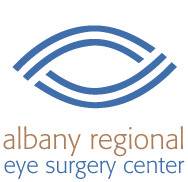eyelid surgery.
Eyelid surgery, also called an eye lift or blepharoplasty, reduces bagginess from lower eyelids and removes excess skin from the upper eyelids. This surgery is usually done for cosmetic reasons however it’s also an effective way to improve sight in older people whose sagging upper eyelids get in the way of their vision.
The Eyelid Aging Process . . .
As skin ages, it gradually loses its elasticity. With a lack of elasticity plus the constant pull from gravity it can cause excessive skin to collect on the upper and lower eyelids. Excess skin on the lower eyelid can also cause wrinkles and bulges. On the upper eyelids, an extra fold of skin can hang over the eyelashes and get in the way of seeing.
There are two types of Blepharophasty:
- Functional: A functional blepharoplasty is eyelid surgery performed for medical reasons. In most cases, a functional eye lift is performed to remove loose skin from the upper eyelid if it droops low enough to impair your vision for driving or other visual tasks.
- Cosmetic: Cosmetic eyelid surgery is a surgical procedure that is not medically necessary and is performed solely to improve your appearance.
The best candidates for eyelid surgery are people in good health and who have realistic expectations. Eyelid surgery can enhance your appearance and/or restore your vision, however before you decide to have surgery, think about your goals and discuss them with your surgeon.
How long will the results of Eyelid Surgery last?
Depending on your health, genetics, and other factors, upper eyelid surgery can last as long as 10 years. Lower eyelid surgery rarely needs to be repeated. Of course, your eyes will still age after the procedure.
Does insurance cover Eyelid Surgery?
Heath insurance companies typically don’t cover cosmetic procedures. However, if you are getting eyelid surgery for medical reasons and tests confirm that your vision is affected, your insurance company may cover it. Discuss this with your surgeon and check with your insurance company before the surgery.
For more information about this or any other eye procedures, please click here for a list of all the fine surgeons who work out of Albany Regional Eye Surgery Center.
learn more.

To learn more about the latest treatments and a glossary of terms, visit our patient education section. If you have any other questions, please contact your surgeon or the center anytime.






